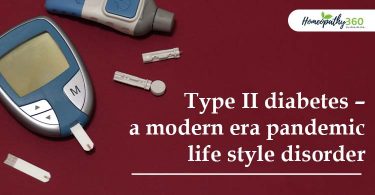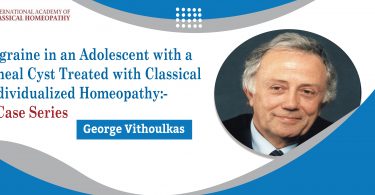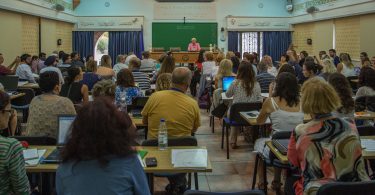Authored by: Dr Himanshu Sekhar Tiwary[1], Dr K.S.Sethi[2]
The legislative history of Homoeopathy in India witnessed its watershed moment on 21st of the last month. Ever since the first parliamentary deliberation held in the British era on the very first session of the Council of State in 1921[i], this act is surely one of the most prominent reform in the whole history. National Commission for Homoeopathy (NCH) and The National Commission for Indian System of Medicine (NCISM) acts bear a very close resemblance to National Medical Commission (NMC) act passed by parliament in the previous year. Therefore they can be seen as an extension of the larger medical reform for medical education, registration and regulation in the country. These changes have happened after a series of consultation and research by different expert committees spanning over more than 12 years. We will therefore discuss this act into two aspects-
- History and Background
- Major changes in NCH act 2020
1. History and Background- MCI was formed in 1933 as a self regulatory body for the medical profession following the steps of General Medical Council of Great Britain[ii]. This was built on the understanding of professionalism of the time and its adherence to ethics and integrity. The structure therein was more suitable for moral and self regulation of the profession. But since then situation has changed drastically and therefore the need to reform the old structure had also gone louder. Due to lack of transparency, accountability and multiple allegations of corruption and malpractice on the age old councils, complete overhaul and reform was under consideration of multiple expert committees as well as policy makers. The most landmark phases of this reform are as follows[iii]–
- National Knowledge commission (subcommittee on medical education) 2008: -Recommended converting the MCI into a full fledged professional body.
- The National Commission for Human Resources for Health Bill, 2011-This bill was later withdrawn which recommended to dissolve the MCI, the Nursing Council, the Pharmacy Council and the Dental Council and replacing them with one comprehensive regulatory institution.
- NITI Aayog expert Committee led by Dr Ranjit Roy Chaudhury 2015– Recommended overhaul of MCI and replaces it with new institution.
- The National Medical Commission Bill, 2017- Proposed to replace the existing MCI with a new body, the National Medical Commission (NMC). Due to its many controversial clauses and subsequent professional resistance, was not approved by the Parliament and eventually referred to parliamentary standing committee.[iv]
- The National Health Policy, 2017- Recommended recreating the regulatory mechanism for health professional education.
- The Indian Medical Council (Amendment) Ordinance, 2018– Notified superseding of the MCI and replacing it by an interim Board of Governors.
- The National Medical Commission Act, 2019- Approved by the Indian Parliament with incorporation of some suggestions by parliamentary standing committee and thus became the law.
Consequent upon these changes in the allopathic system of medicine as well as similar difficulty faced in the day to day administration of CCH, the National Commission for Homoeopathy came into being bearing a close analogy to other two acts passed by the parliament.
2. Major Changes introduced in NCH act 2020
National Commission for Homoeopathy act enacted by parliament in the 71st year of the Republic of India is described in total 08 chapters and 59 sections spanning over 25 pages[v]. It is more detailed act in comparison to HCC act of 1973 which had 5 chapters and 33 sections covered in 19 pages only[vi]. There are multiple sections in the act dedicated for the formation of Commission, advisory council, different boards under the commission etc. Since this article is meant mostly for the Homoeopathic practioners and the students, we will focus mostly on the sections concerning the functioning of the commission and not on its formation. This futuristic document is surely going to pervade and affect all the branches of Homoeopathy i.e. teaching, practice and research in the time to come. So let’s have a glance on the most salient features of this act and update ourselves regarding the changes that is going to unfold in front of us sooner than later-
1. Vision as per the long title of the NCH act-The long title of this act describes its vision and objective in a nutshell. It can also be seen as the soul of the act which may be helpful at many places to understand the sections that follows. These six points appears to be the main vision of the act-
- To provide for a medical education system that improves access to quality and affordable medical education, ensures availability of adequate and high quality Homoeopathy medical professionals in all parts of the country.
- To promotes equitable and universal healthcare that encourages community health perspective and makes services of Homoeopathy medical professionals accessible and affordable to all the citizens.
- To promotes national health goals.
- To encourages Homoeopathy medical professionals to adopt latest medical research in their work and to contribute to research.
- Objective periodic and transparent assessment of medical institutions and facilitates maintenance of a Homoeopathy medical register for India and enforces high ethical standards in all aspects of medical services; that is flexible to adapt to the changing needs.
- To have an effective grievance redressal mechanism and for matters connected therewith or incidental thereto.
2. New legal definition of Homoeopathy-The first thing that strikes in this act is the new legal definition of homoeopathy in comparison to the definition in HCC act of 1973.In that outgoing act Homoeopathy was defined as-2.(d) “Homoeopathy” means the Homoeopathic system of medicine and includes the use of Biochemic remedies”.
In NCH act we find an addition of another point to this existing definition in the form of “supplemented by such modern advances”. It reads in section 2(f) as- “Homoeopathy” means the Homoeopathic System of Medicine and includes the use of biochemic remedies supplemented by such modern advances, scientific and technological development as the Commission may, in consultation with the Central Government, declare by notification from time to time.”
This addition opens up a new dimension altogether for Homoeopathic system of medicine in India. If explored along the lines of Homoeopathic principles and philosophy we may expect some landmark changes in the near future for the betterment of the system.
3. Transparency, Accountability and Limited tenure –
Apart from limiting the tenure of the members (four/ two years) and declaration of assets before joining and after demitting the office, In section 4 this act also laid down a criterion for non ex-officio and part time members of the committee which states-
“Provided that no Member shall either himself or through any of his family members, directly or indirectly, own or be associated with or have any dealings with the managing body of a private or non-government medical institution which is regulated under this Act.”
Moreover In section 6 subsection 7, it further makes a mandatory cooling off period of 2years for the members before joining any private medical institution of Homoeopathy. Now instead of one unified structure there will be three different dedicated boards named as the Homoeopathy Education Board; Medical Assessment and Rating Board for Homoeopathy; and the Board of Ethics and Registration for Homoeopathy to look after different aspects of the commission separately and independently. In section 48, this act further fixes accountability by considering the members of the commission as public servants unlike the previous provisions. It states –
“The Chairperson, Members, officers and other employees of the Commission,
President and Members of Autonomous Boards shall be deemed, when acting or purporting
to act in pursuance of any of the provisions of this Act, to be public servants within the
meaning of section 21 of the Indian Penal Code.”
4. Blend of Experts from Homoeopathic and General Sciences in Advisory Council–
Following the global trend of having some non medical experts in the policy making ,the advisory council will have the Chairman, University Grants Commission: Director, National Assessment and Accreditation Council; four Members nominated by the Central Government from amongst persons holding the post of Director in the Indian Institutes of Technology, Indian Institutes of Management and the Indian Institute of Science apart from different experts from Homoeopathic field(central as well as state).Perspectives from a non medical as well as other disciplines of sciences will definitely help to make more dynamic policies in congruence of the changing needs of the science and society.
5. National Exit Test and National Teachers eligibility test:
There will be multiple national level of examination in the form of NEET UG, NEET PG, National Exit Test and National Teachers eligibility test. The last two examinations are new introduction in the system to improve the standard of practicing homoeopathic physicians and teachers which shall start within three years of this act. These examinations will also help to standardize and provide equal quality of clinician and teachers in public or private institutions across the country. Considering the present situation in terms of very diverse quality of homoeopathic practioners as well as teachers this change looks very promising and rewarding for the profession esp. in the long haul. This is surely going to improve overall Homoeopathic human resources and services across the country.
6. Electronic Synchronisation of the National Register and the State Register-
We have seen multiple discrepancies and challenges faced by practioners due to lack of synchronization of multiple state councils as well as the central council. This act mandates a dedicated Board of Ethics and Registration only for this process. It states-
32. (5) “Every State Medical Council shall maintain and regularly update the State Register in
the specified electronic format and supply a physical copy of the same to the Board of Ethics
and Registration for Homoeopathy within three months of the commencement of this Act.”
32.(6) “The Board of Ethics and Registration for Homoeopathy shall ensure electronic
synchronisation of the National Register and the State Register in such a manner that any
change in one such register is automatically reflected in the other register. “
Therefore we may expect a better coordination between different state councils and the dedicated board of ethic and registration in terms of smooth process of registration, cancellation and re-registration for practioners having practice across different states and in transferable jobs.
7. Strong penal provisions for unregistered practioners of Homoeopathy-
Section 34, subsection 1 of the NCH act describes the rights and privileges of a registered Homoeopathic practioners in terms of issuing of certificate, as an expert in any court of law etc. In its subsection 2 this act describes about a strong penal provision for unregistered practioners practicing homoeopathy-
34(2) “Any person who acts in contravention of the provisions of this section shall be punished with imprisonment for a term which may extend to one year, or with fine which may extend to five lakh rupees, or with both.”
It will be very pertinent to mention here that all medical qualification which have been recognized under second schedule before this act will be valid and maintained by homoeopathy education board in future.( refer section 35.8)
8. Grievance redressal mechanism-
This act has a provision of grievance redressal mechanism which will take up the matter in time bound manner and at multiple levels. Also this act gives some relief to the homoeopathic institutions where they will be imposed penalty before de -recognition. In section 37.1.b says-
“Provided that the Commission shall, before, taking any action for suo motu withdrawal
of recognition granted to the medical qualification awarded by a University or medical
Institution, impose penalty in accordance with the provisions of clause (f) of sub-section (l)
of section 28.”
9. Promotion of medical pluralism-This act provides a unique and a very important provision to promote the practice of medical pluralism across the country. There shall be a annual meeting of all the commissions including Allopathy, Indian system and Homoeopathy for integration and pluralism. It states in the section 52(1)
“There shall be a joint sitting of the Commission, the National Commission for
Indian System of Medicine and the National Medical Commission, at least once a year, at
such time and place as they mutually appoint, to enhance the interface between Homoeopathy,
Indian System of Medicine and modern system of medicine.”
In the section 52(3) it further states-
“The joint sitting may, by an affirmative vote of all members present and voting, decide on approving specific educational and medical modules or programmes that could be introduced in the undergraduate and postgraduate courses across medical systems, and promote medical pluralism.”
Considering the lack of awareness and education in the allopathic graduates about the AYUSH system of medicines and the vice versa this provision seems to be a very significant step in the direction of a Comprehensive health care model. In view of the animosity and confrontational attitude of many medical associations, this annual meeting of different commissions may emerge with policies and regulations to build a conciliatory relation for the better services to humanity.
10. Provision for audit by CAG and supersession by Central Govt.-
Finally to regulate the regulator, in section 41 (1) and (2) there has been provision kept for the audit of commission by CAG. Apart from that as further augmentation to the check and balance in the system, in a certain situations there is provision of supersession of commission by Central Govt. In section 51 it states-
“51. (1) If, at any time, the Central Government is of opinion that––
(a) the Commission is unable to discharge the functions and duties imposed on
it by or under the provisions of this Act; or
(b) the Commission has persistently made default in complying with any direction
issued by the Central Government under this Act or in the discharge of the functions
and duties imposed on it by or under the provisions of this Act,
the Central Government may, by notification in the Official Gazette, supersede the Commission
for such period, not exceeding six months, as may be specified in the notification.”
Overall this act brings about many changes which were long felt by the profession. Considering the fact that India is currently a global leader in Homoeopathy, a good regulatory as well as grievance redressal mechanism in place can be a game changer. It has the provisions as well as the flexibility to adapt to the changing situation of medical field and technology. Last but not the least, the objective of this article is to sensitize the practioners and students about this new act. It is advisable for all the readers to read the act themselves for better clarity and understanding.
[1] Medical Officer, CGHS, Govt. Of India
[2] Sr.CMO (SAG ) CGHS, Ex-Advisor, Ministry
Of Ayush Govt. Of India
[i] The Hon‘ble Mr. SETHNA on resolution regarding Ayurvedic college , first session of the council of state, 16th February, 1921. Cited from https://eparlib.nic.in/bitstream/123456789/760551/1/cosd_01_01_16-02-1921.pdf#search=homoeopathy on 09/10/2020
[ii] Priya, Ritu & Ghodajkar, Prachinkumar. (2018). Regulating the Medical Profession: Challenges and Possibilities of the National Medical Commission Bill, 2017. Social Change. 48. 283-287. 10.1177/0049085718768913.
[iii] Keshri VR, Sriram V, Baru Reforming the regulation of medical education, professionals and practice in India
BMJ Global Health 2020;5:e002765.
[iv] Honavar SG. National Medical Commission Bill, 2019 – Good intent but unmet expectations. Indian J Ophthalmol. 2019;67(8):1259-1260. doi:10.4103/ijo.IJO_1324_19 cited on 09/10/2020
[v] The National Commission For Homoeopathy Act, 2020 cited from: https://www.livelaw.in/pdf_upload/pdf_upload-381801.pdf on 09/10/2020
[vi] The Homoeopathy Central Council Act 1973 No. 59 of 1973 cited from https://cchindia.com/act on 09/10/2020





